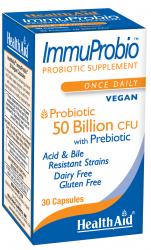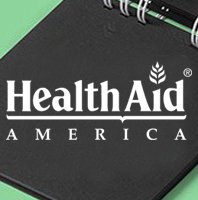Hair Health
Can Vitamins help with Hair loss?
Nawel Neggache Nutritionist, PGdip Dietetics and Human Nutrition, MSc Clinical Nutrition and Food Science
Hair loss, medically termed alopecia, has reversible and less reversible forms. One of the most common types of hair loss is called male-pattern baldness (androgenic alopecia), affecting half of all men around the age of 50. This slow process, characterised by thinning of the hair on the crown and temples, starts usually in people’s late twenties. It is sometimes hereditary, linked with oversensitive hair follicles and increased levels of a certain male hormone. (1)
Genetics is one thing, but hair loss is not simply a hereditary condition. Many health issues can cause hair loss such as thyroid disorders, autoimmune diseases and serious illness. Bacterial and fungal infections causing inflammation around the hair follicles eventually lead to hair loss.
Psychological or physical stressors such as periods of depression, intense stress, bereavement and hormonal changes can also thin your hair, even a few months after a traumatising event.
According to a study published in the Journal of Clinical and Aesthetic Dermatology, “the cause of hair loss in women is often multifactorial including medical conditions, medication, nutritional deficiencies, as well as physiological and emotional stresses.” (2)
Vitamin deficiencies should be one of the first causes to consider.
There is evidence that deficiencies in macronutrients, vitamins and trace elements, may be the key reason leading to hair loss, especially with a lack of protein, iron, zinc, copper or not enough biotin. (3)
What science says?
Amino acids building block of hair protein Keratin
Our diet should provide foods that are precursors in steroid hormone synthesis which have a direct impact on the structure and growth of our hair. An adequate mix of amino acids for protein synthesis is especially necessary for hair strength and growth as 97% of hair is made of protein. There is evidence that protein deficiencies or protein calorific malnutrition causes disturbed hair synthesis - hair fragility and brittleness - leading to hair loss and loss of colour. Without enough protein, the body can't replace the hairs that are shed naturally every day and the hair becomes dry, brittle or weak. Protein should make up 15% of the energy value of the diet, consumed in small portions during the day. (4)
Keratin is the main protein manufactured in skin, nail and hair cells. It has a specific fibrous filament structure. Sulphur amino acids L-Cysteine and methionine help synthesize keratin to influence the hair follicles and help promote healthy hair, skin and nail growth. Sulphur is vital for healthy connective tissue formation, hair requires it for normal growth and appearance.
Good sources of the above mentioned amino acids are cottage cheese, yoghurt, fish, meat, poultry, legumes, seeds, peanuts and grain products. A high-quality supplement for hair should combine both amino acids for a synergistic mechanism of action to help combat hair loss, stimulate hair growth and maintain thick and healthy looking hair.
It’s worthwhile to mention that L-Cysteine is also a precursor of glutathione, one of the most powerful antioxidants in the body to help fight harmful free radicals causing DNA damage and leading to premature ageing. (5)
Protein-rich foods also provide arginine which is a precursor to nitrogen oxide involved in vasodilation (the dilation of blood vessels) and it helps improve the blood supply to the hair root which stimulates hair growth.
Hydrolysed gelatine to encourage Hair growth and Vitality
Gelatine is sourced from hydrolysed collagen derived from skin, bones, cartilage and connective tissues of animals. Despite its naturally high nutritious value, it has almost disappeared from our diet. In fact, gelatine is very rich in proteins; almost 98% of its content is proteins and a rich source of amino acids containing not less than 18 amino acids, primarily glycine and proline. Hydrolysation is a process that helps break down protein into amino acids which makes them easier to absorb. As explained previously, protein is critical for Hair and Skin health.
An interesting double blind study studied the favourable effect on the growth of hair in men treated with a low dosage of gelatine combined with a relatively high dosage of cysteine. The results of this study show that the daily ingestion of foodstuffs containing gelatine is a simple and effective method for the administration of those amino acids which are necessary for enhanced growth of hair in man. The treatment must be of not less than 3 months. (6)
Another study used a gelatine-cysteine topical lotion paired with a daily gelatine-cysteine supplement in subjects affected by alopecia. Results showed an increase in hair mass from 20 to 30% with an increase in hair number (from 17 to 27%) compared to the placebo for subjects using the lotion only.
B complex, “vitamins of beauty”
B vitamins are responsible for the proper formation of healthy red blood cells needed to get oxygen to different parts of the body, including the hair. The B complex vitamins in general are needed for healthy skin and hair. In addition, B vitamins are crucial to help maintain a healthy nervous system, hormone production and healthy psychological function. Stress is another factor of hair-loss. It may be a good idea to supplement your diet with extra B vitamins to help with combating fatigue and anxiety as well as promoting hair growth.
Biotin for healthy scalp and hair colour
Biotin, known as vitamin B7 or H, is a very important nutrient associated with hair loss. Biotin plays an important role in metabolizing the energy we get from food. Poor metabolism of nutrients can contribute to undernourished hair follicle cells. Biotin is specifically required for four essential enzymes that break down protein, fat and carbohydrates. We usually get enough biotin from bacteria living in the digestive tract, good dietary sources include egg yolk, liver, whole-grain cereal and some vegetables. Deficiency is rare; though some people, including vegans, may be at risk.
Research reported that biotin deficiency can lead to thinning of the hair, frequently with loss of hair colour, hair loss and red rashes around the eyes, nose and mouth. (7)
A study conducted at Harvard University suggests that biotin is one of “the most important nutrients for preserving hair strength, texture and function, minimizing hair fall and averting grey hair”. (8)
B5 (pantothenic acid) for hair strength and preventing greying
Vitamin B5 or pantothenic acid plays a key role in maintaining hair flexibility, strength and shine and the colour of your hair. According to the University of Maryland Medical Center, low vitamin B5 is associated with greying of the hair. Vitamin B5 is sometimes called the "anti-stress" vitamin and is critical to the manufacture of sex and stress-related hormones produced in the adrenal glands. Chicken, salmon, avocados and broccolis are good sources of B5. (9)
Vitamins B6 and B12 for healthy hormones and stress levels
Vitamin B6 and Vitamin B12 are additional vitamins to help maintain a healthy hormonal balance and nervous system. Good sources of B6 and B12 are found in cereals, chicken, egg yolk, milk and liver. Both vitamins play an important role in maintaining red blood cells and steroid hormone production, and combating fatigue, stress and tiredness. A compromise in either of these vitamins can affect your hair.
Vitamin B6 helps prevent dandruff and there is evidence that deficiency in vitamin B12 can slow hair growth rate and lead to premature hair loss. If the body cannot process vitamin B12 or utilize food providing sufficient vitamin B12, it can result in undernourished hair follicle cells. A 2013 study published in the Archives of Dermatological Research found that high-doses of vitamin B6 along with L-cysteine helped prevent hair loss during chemotherapy treatment in mice. (10)
Folic acid, Choline, Inositol and Para Amino Benzoic Acid (PABA)
According to an article published in Huntington College of Health Sciences in 2009 [18], “a decrease in folic acid may contribute to decreased hair-follicle cell division and growth. Folic acid is also essential for the maintenance of healthy methionine levels in the body. Signs of folic-acid deficiency include anaemia, apathy, fatigue, and greying hair. Changes in hair colour and texture can be the result of nutritional deficiencies. Often, when the deficiencies are corrected, hair colour and texture are restored. Historically, Paraaminobenzoic acid (PABA) has been used to stimulate hair growth and reduce greying of hair that is associated with nutrient deficiency and/or stress.” Dark leafy green vegetables, beans, seeds (folic acid/choline/PABA), wholegrains, organ meats, eggs (choline) are good sources of these nutrients. (11)
Essential minerals to prevent hair loss
Iron deficiency (anaemia) has been suspected to represent one of the possible causes of excessive hair loss in women who are particularly susceptible to iron deficiency due to the regular loss of iron rich blood during menstruation. The symptoms vary from rapid hair loss, pale appearance, depression and a change of hair colour to a lighter shade as well as excessive dryness of hair.
A study concludes that among the women affected by excessive hair loss, the larger proportion of women (59%) had low iron stores (< 40 microg/L) compared to the remainder of the population (48%) and a low iron store represents a high-risk factor for hair loss in non-menopausal women. (12)
Zinc deficiencies may be associated with hair conditions. Zinc is found in meat, eggs and seafood but our intake is generally low. Zinc stimulates the activity of several enzymes and is therefore involved in normal cell growth as well as normal hormonal and reproductive health. As an essential component of genetic material for DNA and RNA production, zinc helps normal follicle-cell division. Topical applications of zinc have been shown to reduce the hair loss activity of 5-AR type II. The recommended dosage is 15 mg of zinc (in the form of zinc amino acid chelate) per day. A supplementation is often prescribed and supervised by practitioners to correct possible deficiencies.



.jpg)




